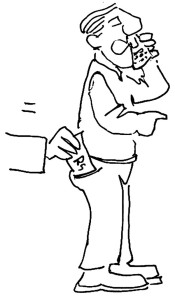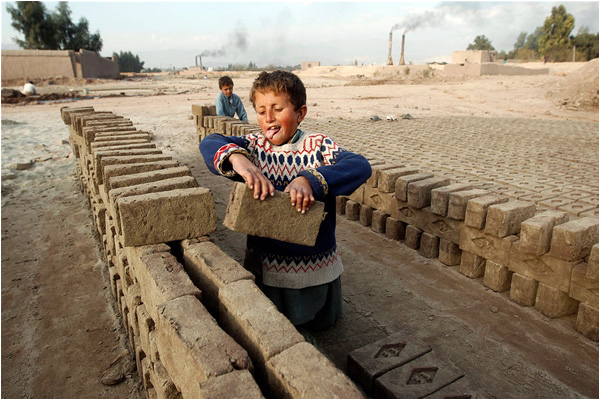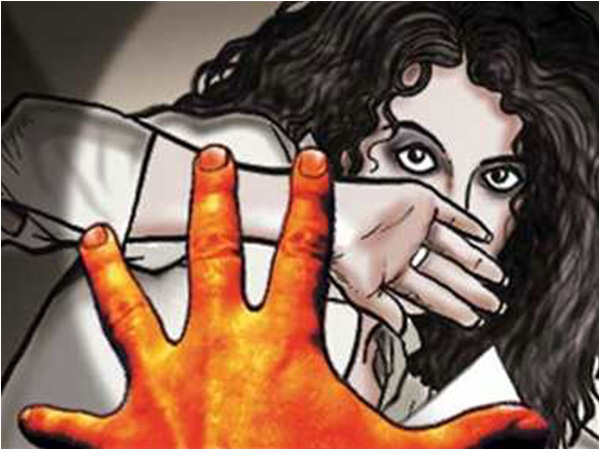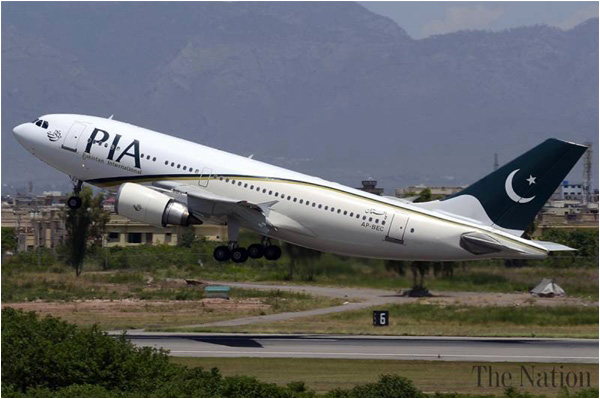
Fiscal adjustments
Sir,
A fiscal adjustment is a reduction in the government primary budget deficit, and it can result from a reduction in government expenditures, an increase in tax revenues, or both simultaneously. Fiscal adjustment is commonly understood as a process, instead of as a status: governments run fiscal deficits, fiscal surpluses or balanced budgets, and the process from a budget deficit to a sustained period of balanced budget is a fiscal adjustment. There are two significant features in any fiscal adjustment: the duration of the process, usually measured in years, that defines the intensity of the effort; and the composition of the adjustment, measured as the proportion of the adjustment obtained from expenditure cuts compared to the proportion gained from tax increases. The income inequality in Pakistan has increased drastically in the last eight years and the trend continues despite all claims of poverty reduction. The main factors that govern personal income distribution include distribution of assets; functional income distribution; transfers from other households, government and rest of the world; and tax and expenditure structure of the government. However, the single most devastating factor for increased income and wealth inequalities in Pakistan remains the regressive tax system. Incidence of tax on the poor in the last 10 years has increased substantially, while the rich are paying almost no direct tax on their colossal income and wealth. A more accurate way to determine the income disparities in Pakistan is the calculation of the Gini coefficient.
M Ali Baig,
Lahore.
Noise pollution
Sir,
I am writing this letter to bring to light the ever-increasing issue of noise pollution in Karachi, with an increasing number of cars being fitted with loud speakers and amplifiers. Adding to the problem is the fact that whenever there is a celebration taking place in a house, such as birthdays or weddings, the amount of noise emanating from the house in question is unbearable for neighbours.
The ‘commotion contamination’ in our city has expanded in the course of recent years in view of progression in innovation, however individuals nowadays tend to utilize it a bit too much in my opinion. Obviously there ought to be amplifiers amid celebrations, yet I see no purposes of utilizing it at each and every little gathering.
Shahtaj Parvaiz,
Karachi.
Bowled out
Sir,
Mohammad Amir has made his return and done so in such a way that he is redefining his own image, for the better. A young talented guy from Gujjar Khan, Punjab, has really made history on numerous occasions with his unplayable bowling around the world. He joined the Pakistani team around seven years ago, with a nation pinning its hopes on him being the next great bowler that the country produces. Today if someone talks about Amir, they almost always talk about how he played brilliantly for Pakistan, especially in the T20 final in front of Sri Lanka, where he proved to the world that a Pakistani bowler can indeed rule over a ground. Moreover, recently in Lahore, when former Pakistani player Azhar Mahmood was asked about Amir, he said that despite Amir being out of cricket for five years, he is still called the best player in the country. He is certainly destined to be one of the greats that will grace the game out of Pakistan.
Nigar KD,
Kech.

Politics sans ethics
Sir,
This is reference to the International Consortium of Investigative Journalists’ report known as Panama Leaks, revealing a list of individuals who had stashed their wealth abroad. How can such people be allowed to hold key offices and political assignments, which decide the fate of this country, where they have no stakes? There is something known as a conflict of interest, and basic norms and principles which people of honor inculcate in themselves. How can Pakistanis, who pay nominal taxes, avail tax remedies, justify owning properties worth millions of dollars in foreign countries, or justify getting generous gifts such as penthouses and villas abroad.
It is in the nature of traders and businessmen all over world that they are driven by instinct and temptation not to let any opportunity go where they can make profits. Whether it is Italy’s Berlusconi, or Thailand’s Thaksin Shinawatra or Yingluck Shinawatra, controversies and scams follow them wherever they go. This is why universally adopted ethics and history tells us that national interests are not served if political public officeholders or their family members are simultaneously involved in trade. When those holding paid or elected public offices are themselves involved in flight of capital, than loopholes will be left in the system to facilitate what amounts to money laundering.
In 1944, Jinnah, a leading lawyer of repute at the time, earning money, gave up his legal practice to devote all his energies to achieving a separate homeland for Muslims to avoid any semblance of conflict of interest.
Malik Tariq Ali,
Lahore.
Saifuddin Kitchlew
Sir,
Fighters for freedom of the subcontinent from the British Raj should be respected in Pakistan. They set the stage that facilitated the creation of Pakistan to ensure the continuation of independence for Muslims in two regions of the country.
A top leader of the Indian independence movement was Saifuddin Kitchlew. Born in 1888, he was the son of a merchant in Amritsar, the second big city of Punjab. He was in England and Germany (1907-12) where he studied law and philosophy. Afterwards, Barrister/Doctor Kitchlew practiced law in Rawalpindi for about three years and was briefly the honorary acting Headmaster of its Islamia High School. Thereafter, he returned to Amritsar. By 1917, he became the secretary of the Muslim League and the National Congress. During a national movement in 1919 against the dictatorial rule, his slogan was that this system meant “na wakeel, na daleel, na appeal”. As those of Amritsar responded with tremendous enthusiasm, Kitchlew was imprisoned in Dharamsala. There was a protest, which resulted in violence. For further protests, a public meeting on 13 April in Jallianwala Bagh was dispersed by the army resulting in an unprecedented massacre. Resultantly, there were disturbances in Punjab, which were crushed with brutality, including an air raid on Gujranwala. Consequently, there were wide repercussions in the country. In this regard, Gandhi said that the foundation of the British Empire in India was shaken by Amritsar. Thirty-one year old Kitchlew, who shook Amritsar as a ‘Baghi’, was declared a hero of Jallianwala Bagh. Later on he participated in various national movements and was frequently imprisoned. He left the Muslim League in 1930 on the grounds that communal parties were not in the national interest. According to his son Taufeeq, author of the book Sifuddin Kitchlew, his father’s strategy was to strengthen Muslims and their unity with Hindus to resist the British. He also realized the importance of Sikhs for this purpose.
Kh Taraq Jazy,
Islamabad.

Child Labour
Sir,
It is a fact that children are any country’s bright future and every state should facilitate its children in acquiring high quality education. Child labour is considered a crime throughout the world with children aged under 18 not being allowed to work, since this results in mental, physical, moral and social disadvantages. But, unfortunately, Pakistan is a country where the world’s third largest child workforce is employed. The Federal Bureau of Statistics released the results of its survey, indicating that 3.8 million children aged 5-14 years are working in Pakistan. Out of these, 2.7 million are working in the agriculture sector. The International Labour Organisation (ILO) suggests that poverty is the main root cause behind the child labour epidemic in Pakistan. I humbly request the authorities concerned and the government to take serious action to eliminate child labour from the country and take action against the owners of all those workplaces where children are employed as workers.
Shakeel Phullan,
Turbat.
Illegal blood banks
Sir,
It is a well-known fact that blood blanks are build for the safety of human beings and supply blood to the needy, but here the case is totally different.
According to a report, there are approximately 450 illegal blood banks that operate in Punjab and a further report disclosed that these blood banks collect blood without screening for diseases and they also collect blood from drug addicts without considering that with blood, we need to know that it needs to be clean. The wrong sort of blood can cause further harm to a patient.
I would like to say that the government clearly states that no bank can receive or supply blood without registration and without ensuring the blood is safe.
MBP Baloch,
Kech.
Cruelty with women
Sir,
It is painful to say that a woman was burnt, allegedly over a domestic dispute. The girl suffered burns on 80 percent of her body, and her condition was rapidly deteriorating. She was taken to the hospital and fortunately she was saved. Today she is safe, but after that who will protect her from the same cruel men. As women are suffering from many dangerous things and police is continuously failing to arrest the men involved in violence against women. Cases of honour killing, rape, sexual abuse, and kidnapping are growing on a daily basis. PM Nawaz Sharif banned honour killing and called it a crime, but still more than one thousand cases of honour killing were reported last year, and 90 percent of cases were not investigated. Where is the government? What is the government doing for the safety of women? The government should work on their responsibilities to protect women in Pakistan.
Sana Khan,
Kech.

Imposition
Sir,
In our country, a Toyota Land Cruiser Prado SUV is considered symbol of status because of its luxurious features and phenomenal price tag. In the Malakand Division, such vehicles are in abundance, with most being used as passenger vehicles. Fielders and Toyota sedan cars are owned by one and all for their ridiculously low prices sans government taxes. As soon as one enters the limits of Malakand Division, one sees bargain centres occupying both sides of the main road with a variety of cars, for as long as the 50-kilometre road ends at Swat’s Mingora town. I have travelled the length and breadth of the Malakand Division, but I have never seen automobiles in so many numbers, even in Karachi and Lahore, a majority being non-custom paid.
The arrival of cars from Afghanistan is so well organised that once they enter Torkham border in Pakistan they are driven openly, with the connivance of custom and police staff, right up to Malakand Division. From there by changing engine and chassis number and preparing fake documents, these cars are sold to customers in the rest of the country. This racket is well established and they are the ones orchestrating the protest against levy of the Custom Act 1969 in Malakand Division.
According to the Khyber Pakhtunkhwa Excise and Taxation Department, the number of non-custom paid vehicles in Malakand Division is more than 1,50,000. By a rough estimate, nonetheless, from the number of cars parked in bargain centres and plying on the road, non-custom paid cars in Malakan Division has crossed the one million mark, while the number is swelling because of new investors entering this lucrative business.
Seeing the flooding of non-custom paid vehicles in Malakand Division and also in Chitral and the windfall of unimaginable profits made by investors, both in the Division and the rest of the country because of a regular supply from this pool, one wonders if an off-shore company has been formed in Malakand Divison.
Sayed GB Shah Bokhari,
Peshawar.

PIA privatisation
Sir,
The government and the opposition have agreed on a bill regarding the privatisation of the Pakistan International Airline (PIA) in a meeting of the joint-parliamentary committee held on Wednesday. The meeting was presided by Federal Law Minister Zahid Hamid. The bill was given the green signal after mutual consensus was developed between the government and the opposition members. It was decided in the meeting that the government will sell as much as 49 percent of PIA’s shares, the remaining 51 percent shares will remain with the government. The management of PIA will remain with the board of governors, however representation within the board of governors will be given in accordance with the percentage of shares. However, the opposition members demanded that the cases registered against protesting PIA employees be taken back. Federal Finance Minister Ishaq Dar responded that to take the cases against the protesting workers back is not within the jurisdiction of the parliamentary committee, however the government is willing to discuss the matter.
Hammal Dashti,
Turbat.

